

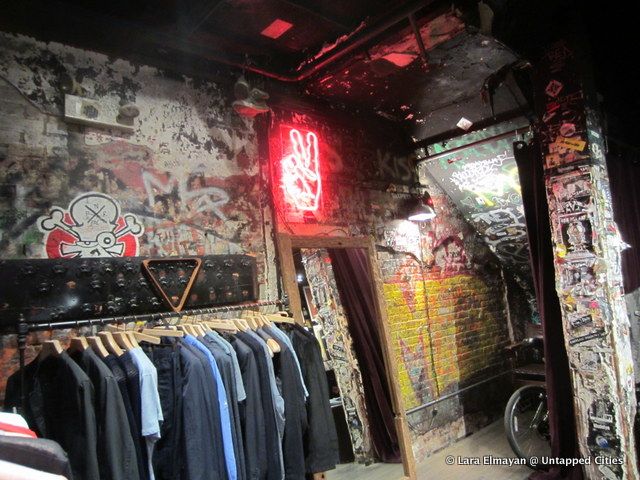
A little over forty years ago, in a nightclub called Max’s Kansas City, Robert Mapplethorpe made his way through a crowd of artists, drag queens, and cocaine fiends, hoping to charm his way into Andy Warhol’s inner circle. His friend and ex-lover Patti Smith, then an unknown like him, watched his efforts warily. A few years later, Mapplethorpe would be shocking the art world with his provocative homoerotic photography and portraits of Warhol. Smith would be performing at Max’s. But before they achieved fame, they were vagrants moving through the world of artists, socialites, and provocateurs in downtown Manhattan. After Mapplethorpe lost his battle with AIDS in 1989, Patti Smith captured their experiences in her award-winning memoir Just Kids.
In this article, we’ll trace Patti Smith’s trail through New York City. Max’s, once a focal point of Warhol’s Factory, is gone now. There is a CVS at the address it once had north of Union Square. But other places are still here or remembered in film.
1. Scribner’s Book Store
The story begins far north of the East Village in Midtown. Patti Smith met Robert Mapplethorpe when she worked at Scribern’s Book Store, at 597 Fifth Avenue, a beautifully ornate headquarters for the book seller. It has been home to Sephora at 48th Street for for some time now, but you can still see the store name in gold. As Smith writes in Just Kids:
“I needed to get another job. My friend Janet Hamill had been hired at Scribner’s Bookstore, and she found a way of giving me a helping hand by sharing her good fortune. She spoke to her superiors, and they offered me a position. It seemed like a dream job, working in the retail store of the prestigious publisher, home to writers like Hemingway and Fitzgerald, and their editor, the great Maxwell Perkins. Where the Rothschilds bought their books, where paintings by Maxfield Parrish hung in the stairwell.”
2. Tompkins Square Park
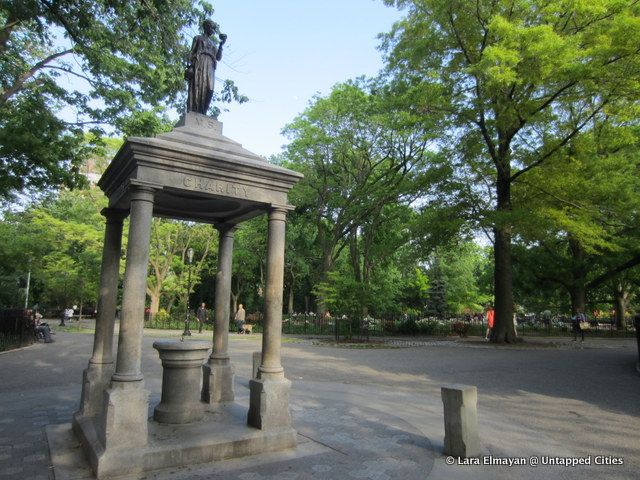
This is (almost) where it all started. Patti Smith, a recent runaway from New Jersey, had met Robert Mapplethorpe twice before their lucky encounter in this East Village park. Walking through Tompkins Square Park after a date with an older writer, Patti recognized Mapplethorpe in the park. Desperate to leave the date, she ran up to Mapplethorpe, asked that he pretend to be her boyfriend, and dashed off with him. This time, they stuck to each other. The park became a center of the anti-establishment, New York punk movement that would hold Smith as an idol.
3. The Chelsea Hotel
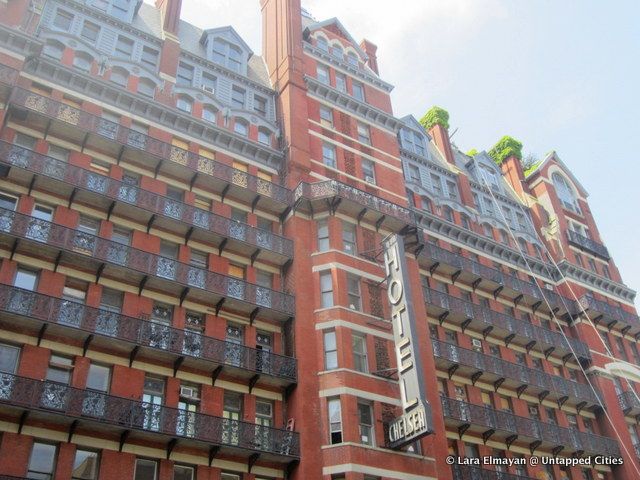
Smith brought Mapplethorpe to the Chelsea Hotel and gave the manager some of their artwork as a promise of future payment for the hotel’s smallest room, 1017. They extended their stay for as long as they could in order to stay connected with the intellectual and artistic community they had found there. At the hotel, Smith befriended Janis Joplin, Allen Ginsberg, Gregory Corso, William S. Burroughs, and Harry Everett Smith.
She was strongly affected by the artistic presence of the poet Dylan Thomas, who had died during his residency at the Chelsea Hotel over a decade before. At one point, she ran into Salvador Dali, who declared that she was like a “gothic crow,” in the hotel’s lobby. When Smith bought her first guitar, she decided that she’d never have to learn how to tune it because she knew so many musicians at the hotel who could tune it for her.
4. El Quijote
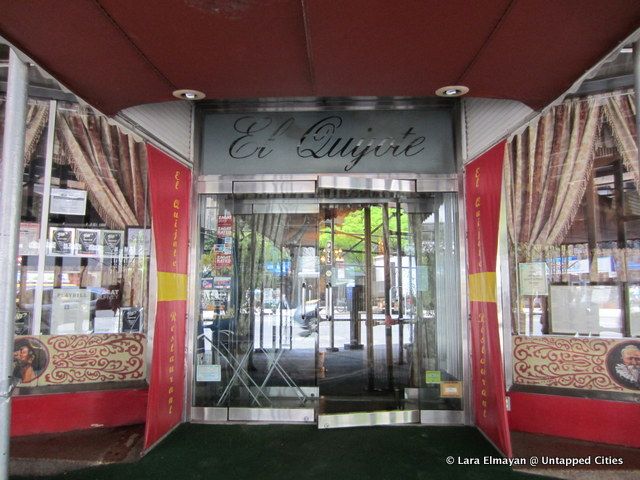
Situated directly below the balconies of the Chelsea Hotel, El Quijote, a Spanish bar and restaurant, acted almost as the hotel’s second lobby. When Smith walked in during one of her first visits, she was awestruck by its patrons. “At the table to my left, Janis Joplin was holding court with her band. To my far right were Grace Slick and the Jefferson Airplane, along with members of Country Joe and the Fish. At the last table facing the door was Jimi Hendrix…. There were musicians everywhere, sitting before tables laid with mounds of shrimp with green sauce, paella, pitchers of sangria, and bottles of tequila,” she recounted in Just Kids.
5. St. Mark’s Church in the Bowery
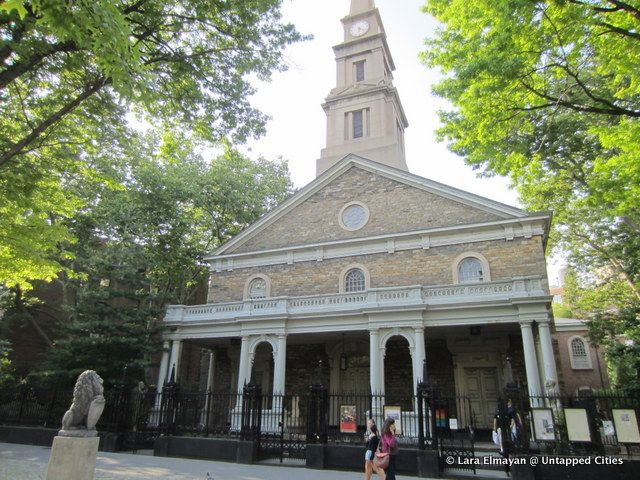
Gregory Corso, the youngest of the Beat poets, took his poetry–and Smith’s–seriously. He dragged her to St. Mark’s Church in the Bowery, the second-oldest church in Manhattan for the St. Mark’s Poetry Project, a poets’ collective. Corso would reportedly heckle other reading poets with cries of “Shit! No blood! Get a transfusion!” Mapplethorpe promised Smith he would get her a reading, and he did.
She decided to “infuse the written word with the immediacy and frontal attack of rock and roll.” With Mapplethorpe, Corso, Warhol and a large group of friends in the audience, she introduced St. Mark’s Church to the electric guitar; a friend played it while she half sang, half recited her poetry. After her successful reception there, the opportunities, she felt, came “too easy.”
6. The Former CBGB

When Smith and her band began their several-week residency CBGB in 1975, they were newly-assembled and relatively unknown. Before the residency ended, she had signed a contract with Arista Records. The CBGB & OMFUG (“Country Bluegrass Blues & Other Music for Uplifting Gourmandizers”) also hosted shows by the Ramones, Talking Heads, Blondie, and Sonic Youth. It went through several changes of ownership and then closed forever in 2006; Patti Smith headlined its final concert.
Now, men’s clothing designer John Varvatos is there. He’s kept the walls intact; they’re still lined with the punk posters, stickers, and graffiti from the building’s vibrant past. “CBGB is a state of mind,” Smith told The New York Times at her final show there.
7. Max’s Kansas City
Smith and Mapplethorpe were seen at Max’s Kansas City nearly every night. This was the watering hole of the counter culture and saw the likes of Andy Warhol, who commanded the back room, artists like Robert Rauschenberg and William de Kooning, the Beat Generation writers, musicians like David Bowie, Iggy Pop and Lou Reed. Bands like the Velvet Underground played there regularly, and Aerosmith had its first show at Max’s. The Patti Smith Group performed at the second incarnation of Max’s Kansas City in the same location.
8. Electric Lady Studios
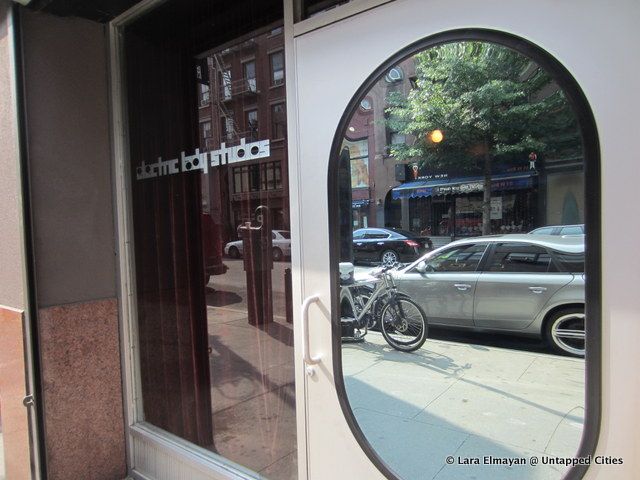
Smith imagined Hendrix’s ghost watching her as she recorded her first album, the acclaimed Horses, in Electric Lady, the studios Jimi Hendrix had established. Maybe this was because she met Hendrix there at the studio’s opening party. Though they were strangers, she confessed to him that she was too scared to enter the party; he admitted that he was more shy than anyone knew, and didn’t like parties either. He spoke about his vivid dreams for music, for Electric Lady, and for peace – and then died a month later. His studio is still being used for by some of the biggest names in music today–most recently, John Mayer, Metric, and, once again, Patti Smith–and is currently undergoing renovation.
9. The Other End/The Bitter End
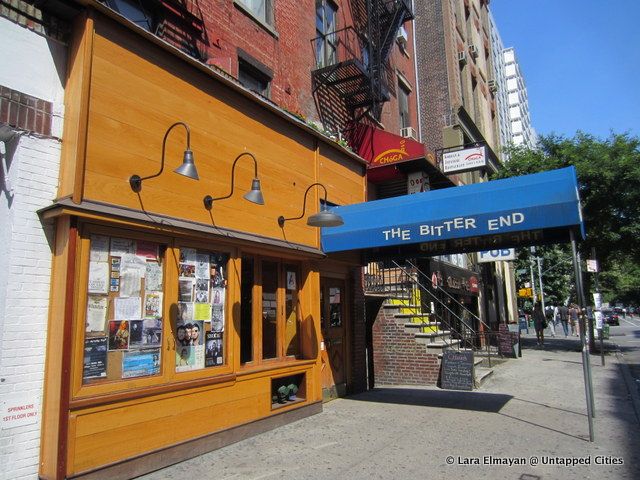
After her residency at CBGB, Patti Smith played her first gigs that incorporated drums here, reveling in the venue’s short distance from her apartment on MacDougal Street. At the time, the venue usually only hosted big names like Joan Baez, Bob Dylan and Joni Mitchell, but had also been the springboard for Peter, Paul, and Mary.
During one notable performance there, Smith claimed she felt an electric presence enter the room and saw that Bob Dylan had come in to see her. “It seemed for me a night of initiation, where I had to become fully myself in the presence of the one I had modeled myself after,” she wrote of the musician whom she had idolized long before she even considered writing music and lyrics herself. The next day, the cover of The Village Voice featured a photo of Dylan with an arm around a offbeat-looking young woman: a fellow poet and musician, a rebel, a voice of a quickly-fleeting generation and the legacy they would leave behind, an emerging icon.
10. 24 Bond Street
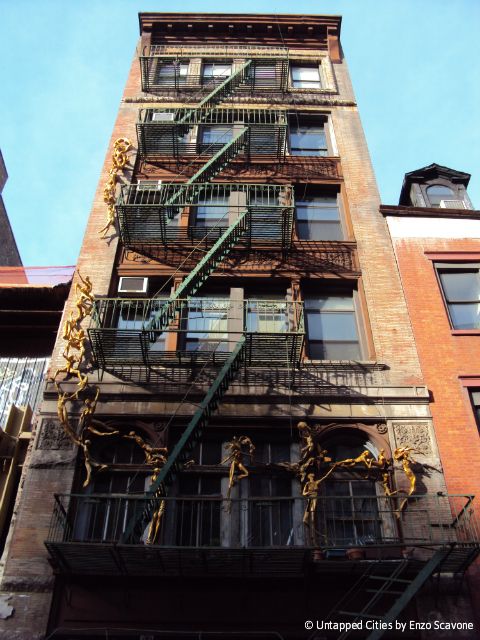
Some of the most famous photographs Mapplethorpe took of Patti Smith were inside his apartment in 24 Bond Street, a famed building in Noho that birthed part of the DIY scene. In addition to a designation as an artists residency, many who lived there converted their apartments into loft performance spaces for jazz and other musicians. The statues on the facade, made for the Gene Frankel Theater in 1988, are still there, as well as the theater itself.
Bonus: Coney Island
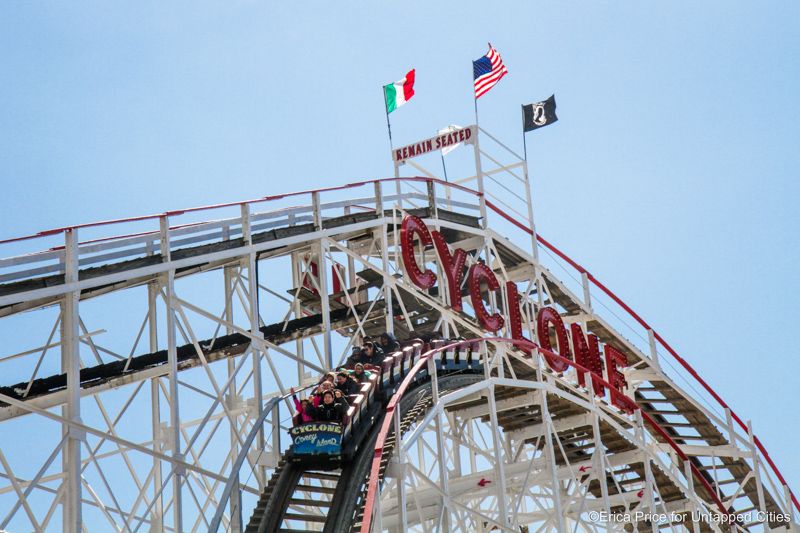
The cover of the book Just Kids is photographed at Coney Island in front of the Cyclone rollercoaster, which is still operating. And if you’re wondering where the photograph at the very beginning of this article was taken, the great website Pop Spots not only identified where a slew of iconic Patti Smith photographs were taken, it also recreates them today.
Next, check out 7 spots in NYC where you can drink like the Beat Generation. Get in touch with the author @laraelmayan.

